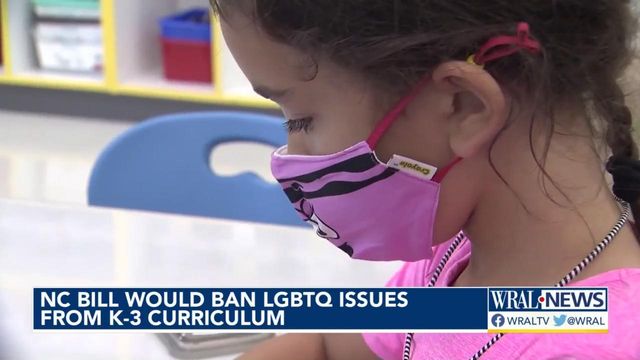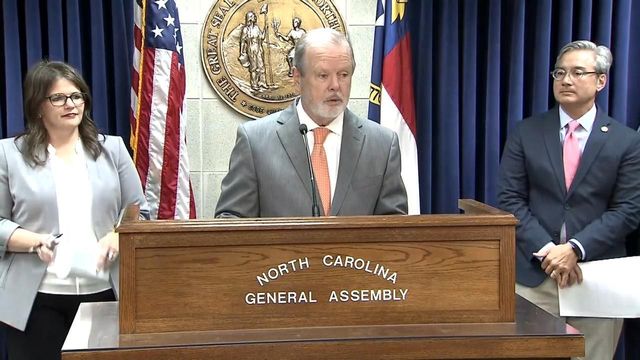NC bill would ban LGBTQ issues from K-3 curriculum
"Parents' Bill of Rights" bill would also require a range of parental notices, including if any student--from kindergarten through high school--wants to use different pronouns to describe themselves.
Posted — UpdatedThe requirements are part of a broader bill, similar to legislation on the move in other states, that state lawmakers call the Parents’ Bill of Rights. Under the proposal, North Carolina schools would have to notify parents if students seek to use a different pronoun to describe themselves, and parents would have to sign off before students could get counseling or other non-emergency health care.
The restriction on sexuality and gender identity teaching forbids including those topics in school curricula for kindergarten through third grade. It's not intended to ban discussions that come up organically in class, Berger, R-Rockingham, said during the news conference.
"There’s no attempt to squelch folks from talking about things," Berger said. "There is a specific prohibition on it being part of a curriculum in kindergarten through third grade.”
The bill itself says that "instruction on sexual orientation or gender identity shall not be included in the curriculum provided in grades kindergarten through third grade," and it defines curriculum as "the standard course of study and support materials, locally developed curriculum, supplemental instruction, and textbooks and other supplementary materials."
The new bill's parental notice section generated concerns among opponents Tuesday that LGBTQ students, afraid of how their parents would react if they find out about their sexual identity, could no longer turn to trusted teachers for guidance.
What if a parent is abusive, state Rep. Allison Dahle, one of the legislature's few openly LGBTQ members, said after the bill was announced. "Is the teacher going to be responsible for the child's beating," said Dahle, D-Wake. "North Carolina needs to be a safe place for everybody, and this is going to remove that safety net for children."
Berger said that parents "have a right to know these things."
Charlotte Pride Board of Directors President Clark Simon said in a statement that the bill would "endanger transgender and gender-nonconforming youth by requiring schools to forcibly out transgender youth to their parents," and he noted the higher suicide rate for LGTBQ young people.
"This legislation will make this reality worse, not better," Simon said.
Much of the rest of the bill lays out parents' rights to various notices, including to receive regular report cards and to participate in parent-teacher organizations. It also says school systems must establish procedures for parents "to object to textbooks and supplementary instructional materials."
School issues, and particularly the matter of how much say parents have in their children's education, are potential major political motivators as North Carolina heads into the November elections, where every General Assembly seat will be on the ballot. Former Virginia Gov. Terry McAuliffe, a Democrat, lost the Virginia governor's race last year to Republican Glenn Youngkin in part because he said during a debate that he didn't "think parents should be telling schools what they should teach."
Berger said Tuesday that early in the pandemic, when many classes shifted to online-only, parents learned more about what their children were being taught in school. They've responded by showing up at school board meetings and talking to lawmakers, he said.
"This is an issue that parents all across the state have been concerned about," Berger said. "They are worried about things that they have seen."
• Credits
Copyright 2024 by Capitol Broadcasting Company. All rights reserved. This material may not be published, broadcast, rewritten or redistributed.






